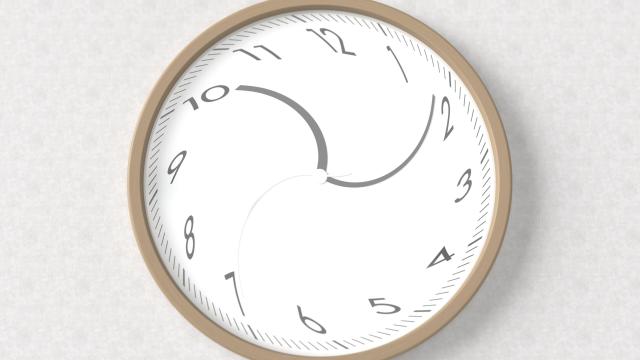The final countdown has begun for leap seconds. A global group of scientists and government officials voted (almost unanimously) Friday to axe the small time adjustment method, in a change scheduled to take place by 2035.
Leap seconds have been used since 1972, and over the past 50 years have caused big headaches for the tech industry. Now, the International Bureau of Weights and Measures has formally agreed with the likes of Mark Zuckerberg, that it’s time for the practice to end. In a resolution at the bureau’s 27th meeting, the timekeeping body elected to find a new way to manage the small discrepancies between our planet’s actual position and the number on the clock.
In the inevitable forward march of time, the Earth spins and clock hands turn — but not exactly in sync with one another. In fact, when it comes to keeping time, our clocks are more accurate than our planet. Earth’s rotation is subject to slight shifts and wobbles from the friction caused by tides, and random quirks of its fluctuating asymmetry as it moves through space. Generally, this has resulted in days and years ever-so-slightly longer than those measured by an atomic clock. And, since 1972 we’ve managed the difference through the somewhat haphazard implementation of leap seconds, i.e. seconds skipped on the official clock. Ten leap seconds were initially added to the clock and there’s been 27 total additional ones tacked on in the 50 years since leap seconds were first introduced, most recently in 2016.
Tech companies have hated them, basically every time. There’s no coordinated system for managing the change, and often it can confuse code, which is written under the assumption of a consistent, forward moving time. And though leap seconds are basically unnoticeable for the average person, the small, irregular time jumps have the capacity to trigger big online outages in systems that rely on time keeping. In 2012, Reddit crashed for about 40 minutes because of a leap second. Gizmodo’s own i09 and other (formerly Gawker) sites also went down during the same 2012 leap second. Cloudflare also reported similar issues in 2017. Meta published a treatise against leap seconds on its official company blog earlier this year.
“The consequent introduction of leap seconds creates discontinuities that risk causing serious malfunctions in critical digital infrastructure including the Global Navigation Satellite Systems (GNSSs), telecommunications, and energy transmissions systems,” acknowledged the Bureau of Weights and Measures in its newly passed resolution. The intergovernmental organisation also attributed its decision to the lack of coordination across digital networks, general confusion caused by leap seconds, and the fact that the Earth’s rotation is speeding up.
In recent years, a “negative leap second” where we jump back instead of forward to account for an accelerating planet, has been floated as a possibility. But a negative leap second could be even more difficult for the internet to deal with, and the consequences have “never been foreseen or tested,” wrote the bureau. Instead, the global timekeeping organisation has opted to find a different solution over the next 13 years, and for Coordinated Universal Time to continue uninterrupted for at least the next 100 years. After that, who knows what will be decided. Only time will tell.
